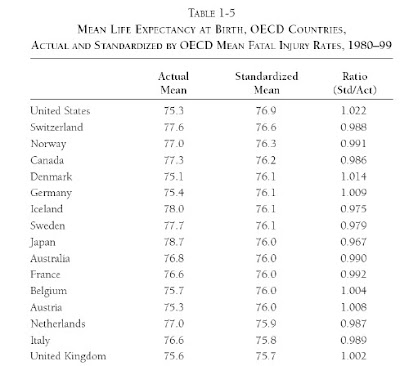Please, don't blame them for their misconceptions. They are just reading the inaccurate accounts of the terrible "dog eat dog, winner-take-all" culture as portrayed in the media. It's the same way with many other issues: I'm sure many outside the US believe every American is packing a gun, works 90 hours per week, takes 2 days of vacation per year, worships 30 hours per week at a church in the woods, and that 50% of us are illiterate. It's what the US media like to report, and it's what the foreign media likes to pass along.

